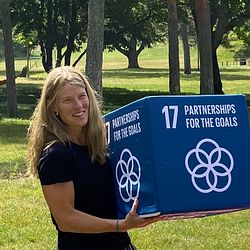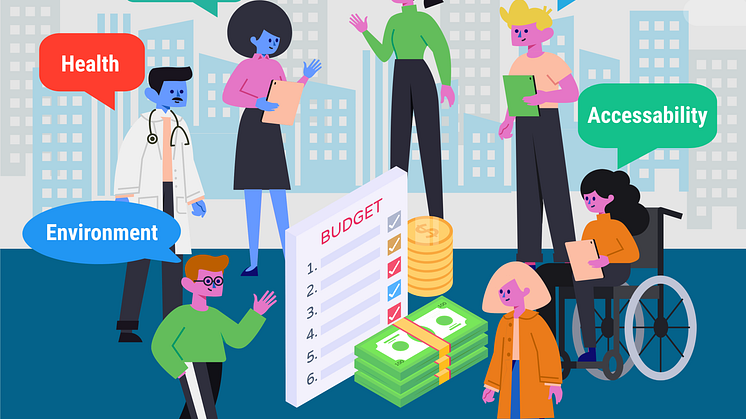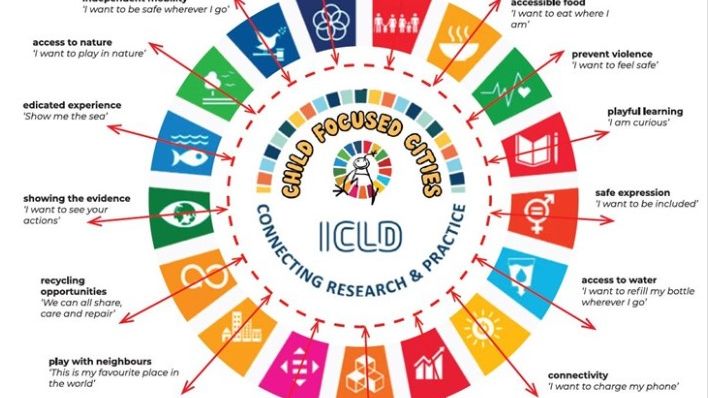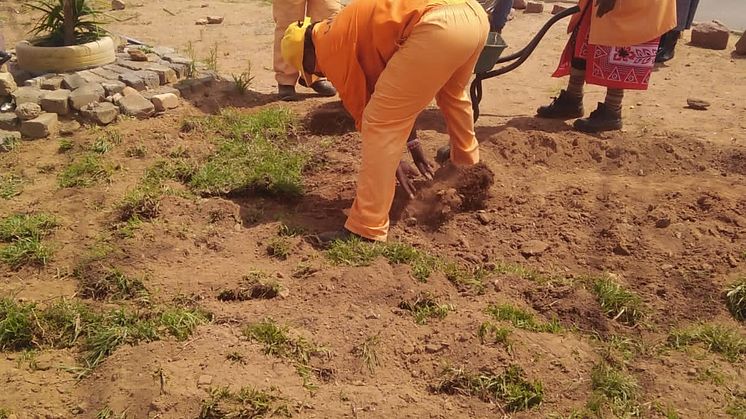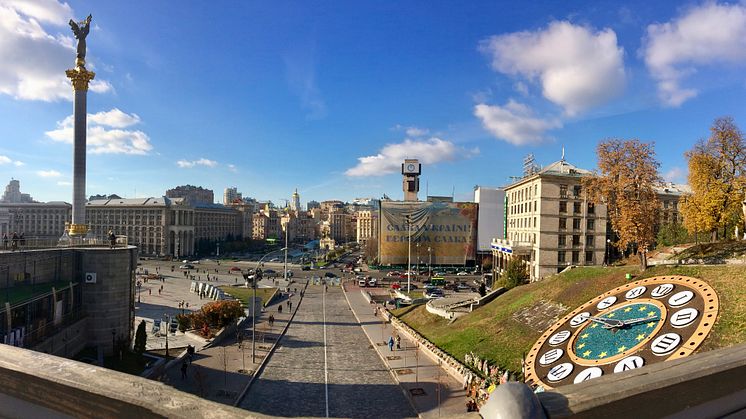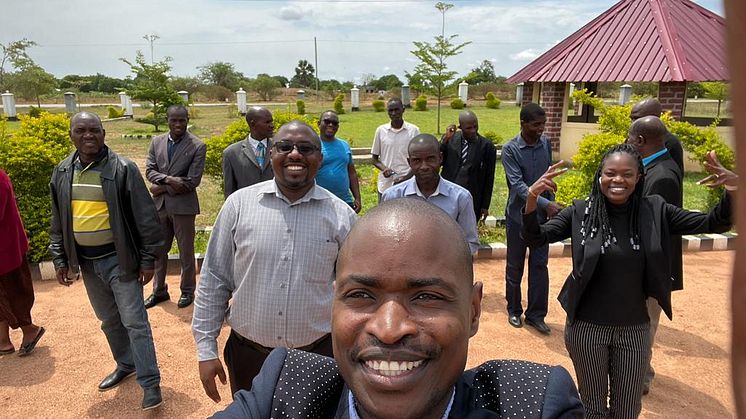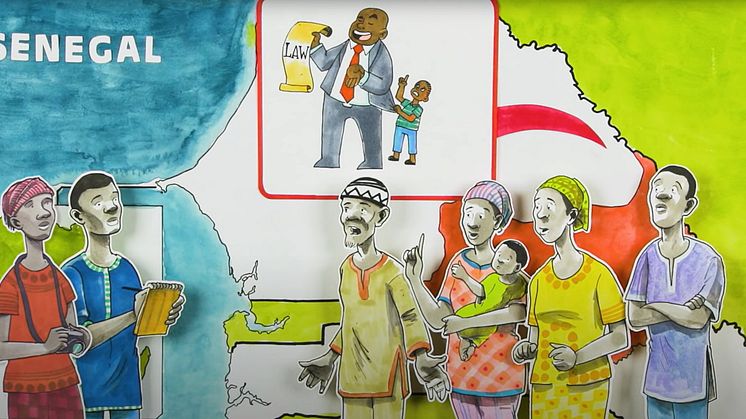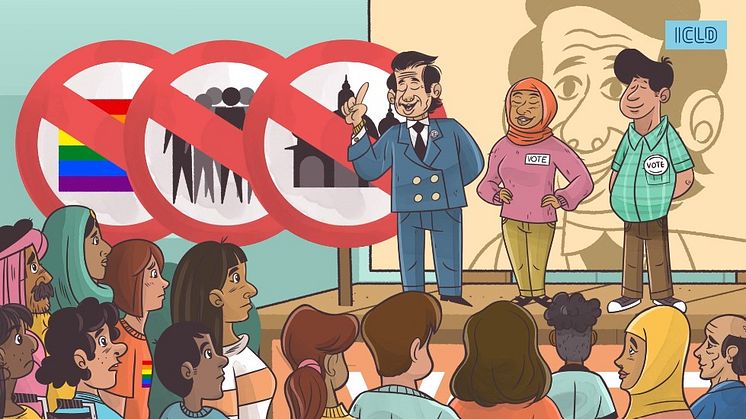
Blogginlägg -
Can morality laws threaten local democracy? Results from a research project in Indonesia
Five scholars from the Universitas Gadjah in Indonesia came together to find out why some cities in West Java have become exclusive against minorities, whereas others remain relatively inclusive. By identifying the elements of inclusive cities - looking at policies and bylaws, the morality behind them, and citizens' values and participation in their implementation - the research can influence local policymaking in this Asian island nation.
What do they find? ICLD walks you through the most important aspects of this just-finished research project.
What were the key findings?
The research revealed the presence of a “coalition of exclusion” in the policy-making process that hijacks democratic procedures to produce exclusionary policies. This implies that:
- Democratic pushes on the national level do not have the same impact on the local level
- The installation of democratic institutions and procedures is not necessarily followed by efforts to ensure socio-economic and political equality among citizens
- The mechanisms of democratic accountability, horizontal, vertical, and diagonal, do not seem to work well in Indonesia.
The research brought to light that the lack of transparency and public participation in the local policy-making process allows the so-called coalitions to dominate the scene. There are some regions where patrimonial politics actually support authoritarian regimes, which could indicate the existence of authoritarian enclaves throughout the nation.
According to the study, when the government decides to implement discriminatory policies, minority communities are frequently caught off guard.
What did this project achieve?
- Initial conversations with the provincial government of West Java on the urgency of reviewing existing exclusionary local regulations within its jurisdictions as well as on the importance of mainstreaming inclusive policymaking.
- A transfer of knowledge thanks to the close engagement with minority groups since the early planning of the research, could be beneficial for their future empowerment and advocacy work.
So what do policymakers need to do?
- Promote transparency and public debates at the local level to achieve inclusive policymaking. It is through such debates that pro-inclusion actors may also have a space to advocate for the need to mainstream gender equality, disability, and social inclusion in local policy-making processes.
- Better understand how exclusionary policies are made at the local level to help minoritized communities, their supporters, and other pro-inclusion organizations to come up with better strategies to mitigate the impact of existing policies while preventing the adoption of other exclusionary policies in the future.
- Communicate more intensely with relevant government institutions at the provincial and national levels as well as with national and international non-governmental organizations and donor agencies that work on the issue of social inclusion in Indonesia about the importance of local bureaucracy and policy-making processes as venues to mainstream social inclusion.
What was the biggest challenge to policy-relevant research?
Due to the COVID pandemic, as well as the fact that the exclusions against gender and religious-based minorities are a sensitive topic in West Java, communication was a big challenge for the project. Both during the research design and dissemination phases. However, the researchers came out with different ways to involve members of the community and carried out preliminary discussions with the provincial government on the issue to carefully push for policy changes.
Last but not least, what does the future look like?
This research hopes to generate long-term impacts on the theoretical discourse and practical implementation of inclusive policymaking in Indonesia. Researchers also expect that it can spark a renewed interest in public debates on local the importance of transparency and public participation in local policymaking.
Also, it can be used as a basis for universities and education to collaborate with pro-inclusion organizations and government institutions to develop a curriculum on inclusive citizenship and democracy.
“We hope to future expand this research cover to other provinces in Indonesia, especially those provinces that are known to have adopted exclusionary policies against minoritized communities in the past” - Ayu Diasti Rahmawati, researcher
Stay tuned in ICLD's channels for the comprehensive research report, a straight-to-the-point policy brief, and a 4-minute video brief to get the main points as quickly as possible.
Wawan Mas’udi, Senior Lecturer, Vice Dean of Academic and Student Affairs, Faculty of Social and Political Sciences (FISIPOL), Universitas Gadjah Mada
Erwan Purwanto, Senior Lecturer, Dean, Faculty of Social and Political Sciences (FISIPOL), Universitas Gadjah Mada
Ayu Rahmawati, Lecturer, Faculty of Social and Political Sciences (FISIPOL), Universitas Gadjah Mada
Ulya Jamson, Lecturer, Faculty of Social and Political Sciences (FISIPOL), Universitas Gadjah Mada
Fuji Prastowo, Lecturer, Faculty of Social and Political Sciences (FISIPOL), Universitas Gadjah Mada
